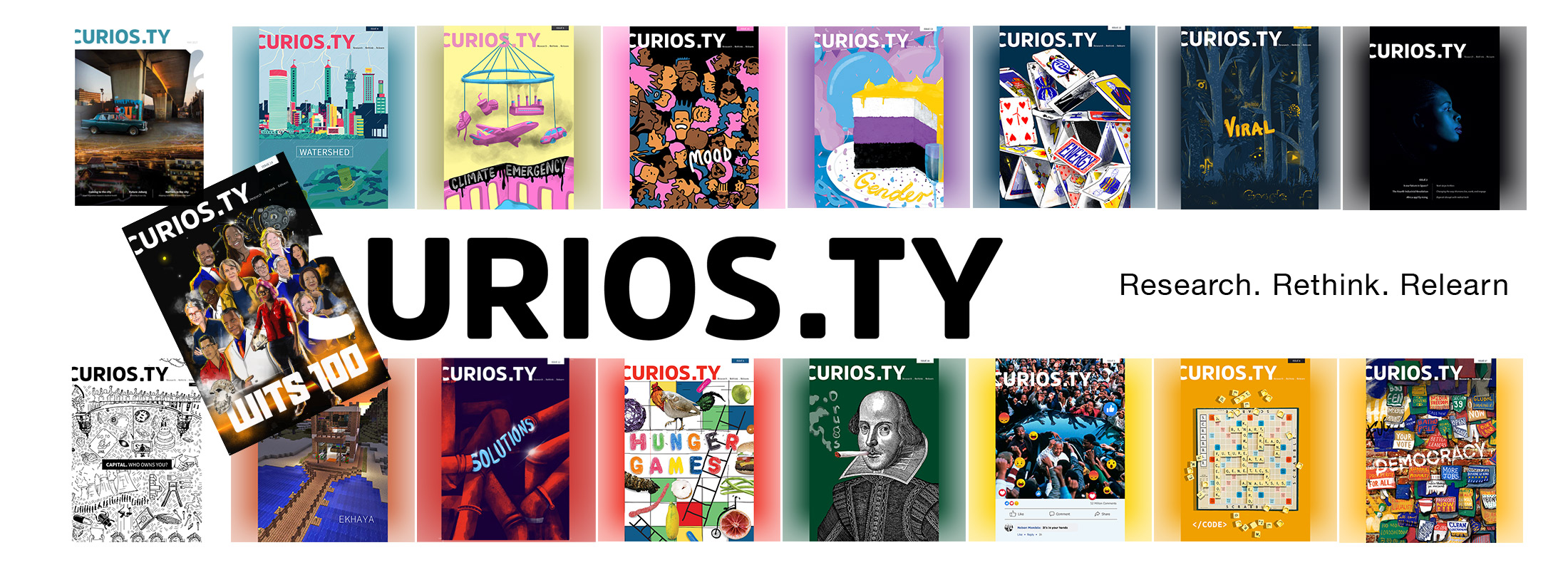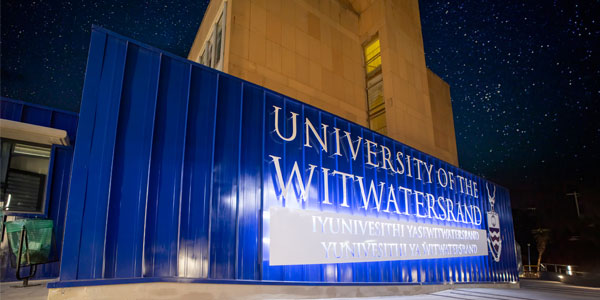
How higher education can help heal us all
- Beth Amato
“We live in the most unequal country in the world. We can help bridge the divide and we don’t have any time to waste.” – Dr Judy Dlamini.
The higher education sector, with universities a part of this larger “edusystem”, is fundamental to creating and contributing to societies that are equipped for the 21st Century. Beth Amato asks academic experts and vice-chancellors how they envisage higher education in the next 100 years.

When Professor Yunus Ballim became the first Vice-Chancellor and Principal of the new Sol Plaatje University in Kimberley, Northern Cape, in 2014, he had to contend with the reality of creating a relevant tertiary institution in a saturated market, with deep polarities and divisions threatening to unravel the delicate threads of culture and society.
Ballim knew when establishing the university that the way we think about higher education had to change completely. “For me, it’s about allowing students from a variety of backgrounds to contribute to scholarship meaningfully, and to feel unashamed of the knowledge that they bring and the ways in which they think about and process information,” says Ballim, who remains an Emeritus Professor at Wits University.
Ballim’s approach speaks to the ‘why’ of higher education. In the 21st Century post-pandemic world, information is readymade and pressing global and local challenges need solutions immediately. But a university’s role is also to see the bigger picture – to stoke the fires of critical thinking and ways of knowing and inspire the application of humanity’s best gifts across disciplines.
Functional facilities and individual focus
To facilitate this philosophy, Ballim says that competent classroom teaching and functional learning facilities are critical. “Universities need to ensure that every single student’s educational development is realised. This extends to all features of their university experience, including their interaction with administrative and operational functions.”
One of Ballim’s first tasks was to ban academic development programmes. “We cannot blame students for failing. They fail in part because of our inability to teach them properly. For me, it’s not about English language competence. Let’s look behind that all. We want to increase knowledge and spur action. Therefore, academics must learn to read a particular student’s work and allow that student to feel comfortable in sharing ideas. If you don’t know that a student has six words for ‘uncle’, then you cannot teach that student anthropology, for example,” he says.
Ballim is critical of decolonising the university curriculum. “It’s possible to be racist and right-wing in any language and culture. Poverty hurts, no matter the country in which you live. Both Shakespeare and Plaatje have relevance to readers everywhere. Rather, we need to decolonise the mind. There are so many ways of knowing. Why shouldn’t we read Camus in Tswana? Why aren’t Russians reading Plaatje? It’s about both and not either/or.”
Lifelong learning and flexibility
Professor Diane Grayson, Senior Director: Academic Affairs at Wits, says, “For me, it’s about flexibility. We need to accommodate students coming from diverse life circumstances.”
Indeed, in the 20th Century in South Africa, the majority of university students were young undergraduates studying full time. But Grayson says that this is an old-fashioned model of higher education and a declining trend globally.
Many students who attend university today are older than just-out-of-high-school, and they must earn an income. Many are caregivers of older parents or young children, yet these students want to earn qualifications or change their career paths. “Higher education should embrace lifelong learning in a diverse student body. One of the ways that lifelong learning is realised is through ‘stackable micro-credentials’, allowing students to receive their qualification in a flexible, stackable way,” says Grayson.
More maths for an AI future
Just as teaching and learning pedagogy has evolved, so too should subject matter. Professor Loyiso Nongxa, former Wits Vice-Chancellor and Principal (2003-2013) and a mathematician, is passionate about ensuring that students have the mathematical capability to respond to the ruptures brought about by the Fourth Industrial Revolution.
“The mathematics that we are teaching is insufficient to deal with the scope of what’s to come. Mathematical sciences must be prioritised in universities, schools, and even crèches,” he says.
Nongxa is involved in various projects to ensure that maths education is relevant and responsive to local and global challenges.
“We are looking at developing a maths-based Master’s programme looking at artificial intelligence in the financial sector. We are also seeing how maths can be deployed to promote inclusion and equity, such as in banking services.”
Professor Ruksana Osman, Senior Deputy Vice-Chancellor: Academic at Wits – and UNESCO Research Chair in Teacher Education for Diversity and Development – is responsible for the broad coordination of the academic project across all divisions of the University, and she oversees the University’s online and blended-learning academic strategy.
“The contours of higher education locally and globally show clearly that lifelong learning and the flexibility in learning are going to be important if we want to serve a digital nation. It means that we need to start decoupling learning from the place of learning and in this way open up opportunities for more equitable approaches to accessing education globally and locally,” says Osman.
Global North, Global South, one world
No stranger to issues around inclusivity and equity, Professor Adam Habib served as the Wits Vice-Chancellor and Principal from 2013 to 2020, during the tumultuous #FeesMustFall era of student protests. Now Director of the School of Oriental and African Studies at the University of London, Habib believes that collaboration between institutions in the Global North and the Global South is the path towards addressing both structural inequalities in higher education and in society. He speaks of “clusters of excellence” co-run by universities across the world.
Although the Covid-19 pandemic pushed online learning forward, Habib says that there is no doubt that we need to have as many face-to-face, in-person experiences as possible. “Learning does not only happen in the classroom, virtual or in-person. Students learn from the social interactions that universities facilitate.”
“We envision cross-continental teaching and learning on the grounds that this could assist in stemming the ‘brain drain’ and enable scientific and technological capacity to remain on the African continent,” says Habib.
He refers to two major game-changers in the higher education space: the announcement by the African Union and the European Union of an AU-EU Innovation Agenda, and the initiative between the African Research Universities Alliance (ARUA) and the Guild of European Research-Intensive Universities.
“These announcements highlight that we’re in this together. That we’re interconnected. That what affects me, affects you. Now we can develop institutional capacity and build human capability across the world to address transnational capacity. These developments show that it is possible to develop equitable partnerships in an unequal world,” he says.
Enduring partnership
“Collaboration is going to be very important for higher education. And it can’t be a once-off phenomenon,” says Dr Judy Dlamini, Wits University’s Chancellor. She refers to the exemplary collaboration of the private and public sectors in ensuring equitable technological access for students during the Covid-19 pandemic. Laptops were donated and data were zero-rated.
“We live in the most unequal country in the world. We can help bridge the divide and we don’t have any time to waste. Inequality breeds instability, and if we don’t work together, the July 2021 riots that devastated South Africa will look like a child’s picnic,” she says.
Dlamini draws on the example of the Wits Donald Gordon Medical Centre, the first private teaching hospital in the country. “We had to address the critical shortage of medical sub-specialists in South Africa and the public sector was too constrained to do this on its own. Wits, along with a generous donation from Sir Donald Gordon, responded to this crisis in a world-class manner,” she says.
“We need to show that higher education is relevant and there is nothing better to highlight this phenomenon than the Wits Tshimologong Digital Innovation Precinct in Braamfontein,” adds Dlamini.
This “digital innovation ecosystem” encourages entrepreneurship and grows the skills necessary for succeeding in the digital economy. Tshimologong is a Wits entity that facilitates collaborations between academia, corporates, government and entrepreneurs in the digital sphere. “It is up to all of us to make higher education count in the next 100 years,” says Dlamini.
Innovation and anticipatory consciousness
The higher education sector – and universities in particular – provide a platform for innovation, new knowledge creation, high-level and scarce skills development, and the incubation and exchange of ideas. Universities are also treasure troves of knowledge that need to be protected, valued, guarded and strengthened.
Osman says, “Research-intensive universities will also have to learn to make optimum use of resources and develop an anticipatory consciousness rather than a reactive one. The 2020 global pandemic has taught us first-hand about the need to be able to anticipate challenges so that we are not blindsided when such challenges hit universities and society.”
A future for good
Certainly, innovation underpins Wits’ role in higher education in its next century. Innovation is fundamental to the Wits 2033 Strategic Plan, the implementation of which Professor Zeblon Vilakazi, Wits Vice-Chancellor and Principal since April 2021, will lead.
“It’s crucial for Wits’ development and growth that we continue to develop local and global partnerships that cement the University’s position as a leader in innovation,” says Vilakazi.
“Universities enjoy longevity in society – akin to libraries and museums. They are institutions that usually outlast multiple generations. Research-intensive universities like Wits have a role to play in society as a catalyst for change. Looking ahead, these universities should strive to create new knowledge and apply this knowledge for the benefit of society.”
- Beth Amato is a freelance writer.
- This article first appeared in Curiosity, a research magazine produced by Wits Communications and the Research Office. Read more in the 14th issue, themed: #Wits100 where we celebrate a century of research excellence that has shaped today and look forward to how our next-generation researchers will impact the next 100 years.

